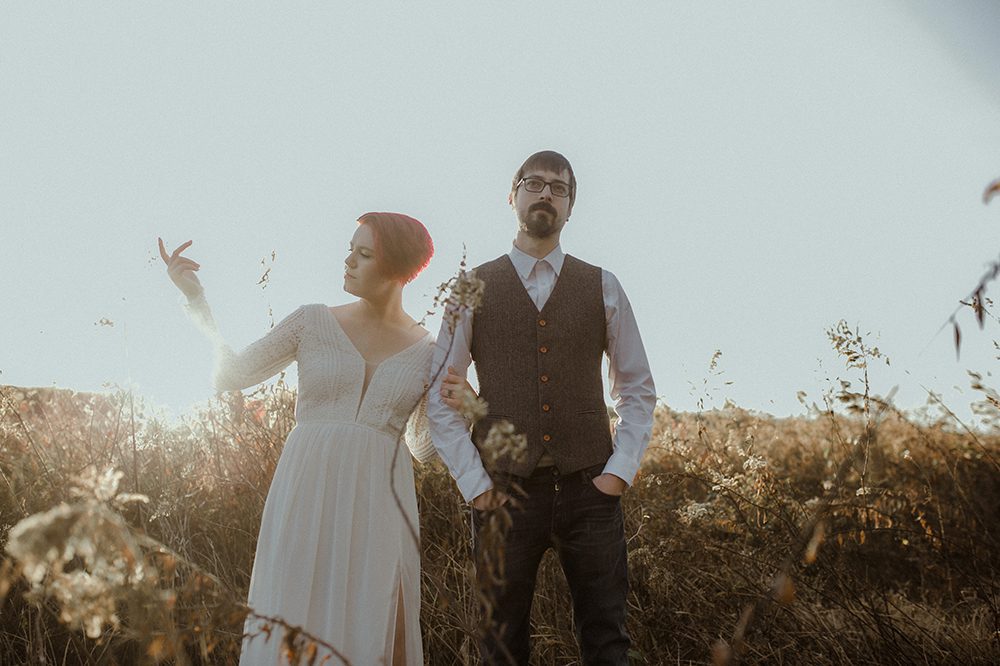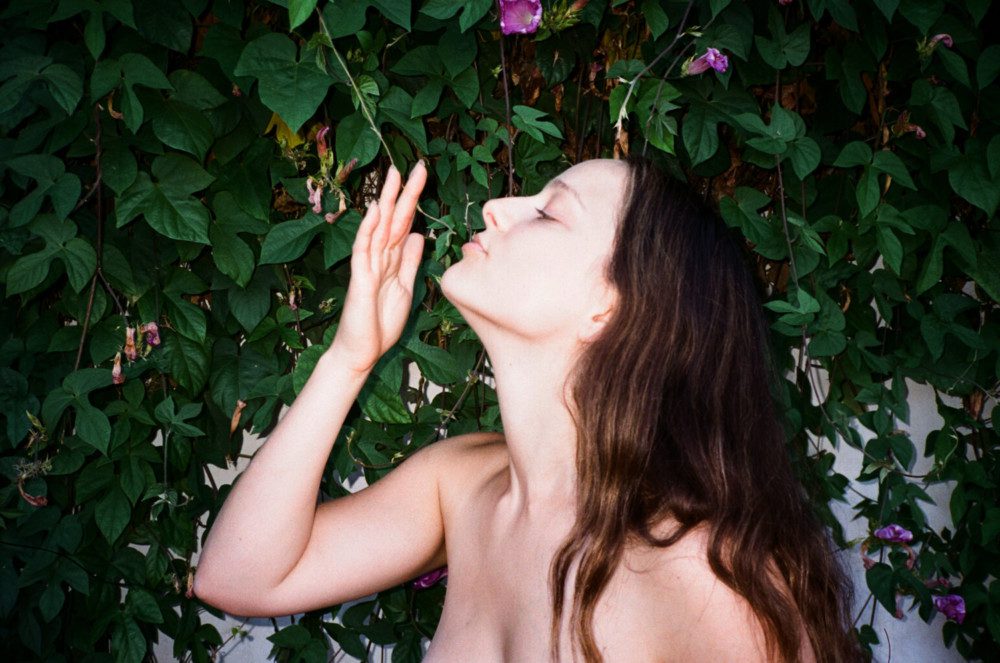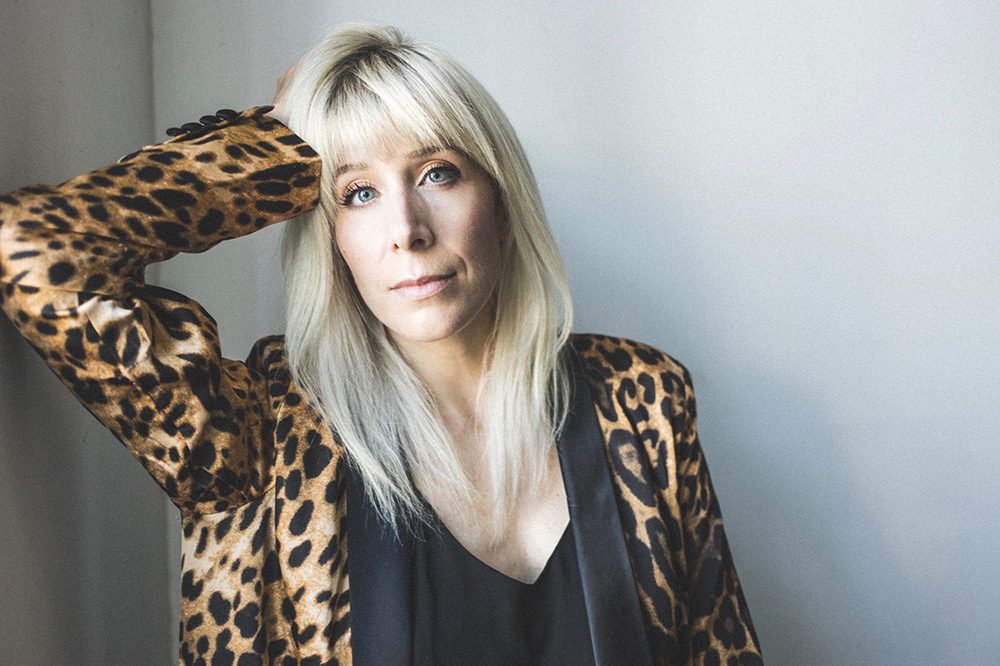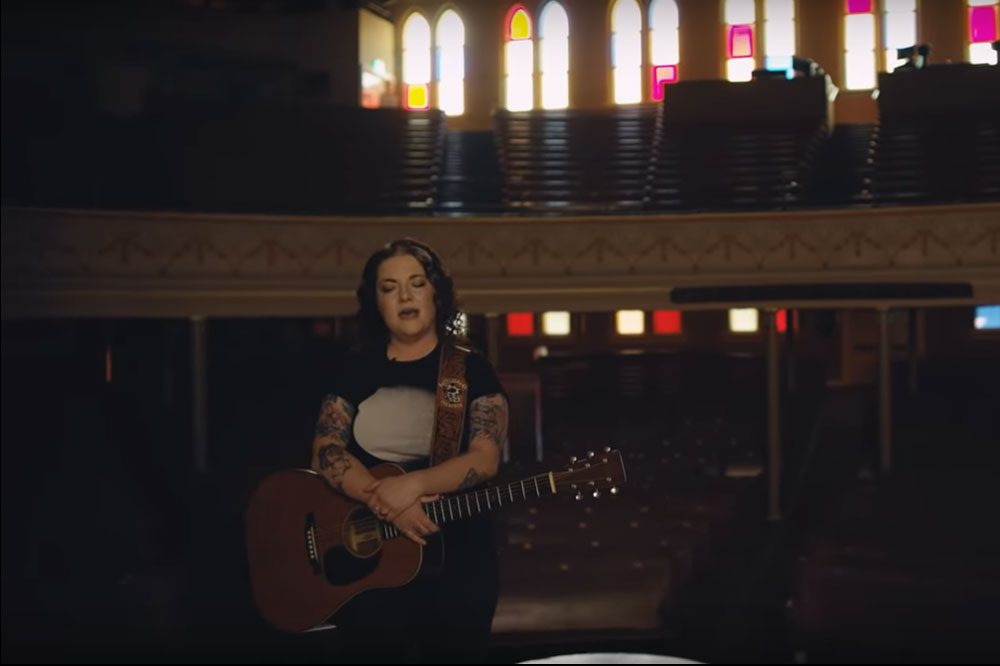

Dale Chapman and Cody Clark are natural born storytellers, so it’s only fitting that music is what brought them together. The two met by a happy accident, guitarist Clark voyaging across the country from Washington state to Music City where vocalist Chapman was working at a restaurant in Midtown. Clark and his friend came in just after arriving in the city; Chapman struck up a conversation with the musicians that serendipitously led to a co-writing session between her and Clark. Realizing the creative chemistry between them in that first writing session, they formed folk duo Haunted Like Human, releasing their debut album Ghost Stories in 2017.
“We were talking about the universal human experience of being a little bit haunted by something, whether it’s your past or a mistake. That part of being haunted in this human experience,” Clark describes of the meaning behind the duo’s name. “We really try to tell stories in every song we write.”
They channel this symbolism into their new song “Stay” (premiering exclusively via Audiofemme) from forthcoming LP Tall Tales & Fables, out October 15. The stirring acoustic number puts mental health at the forefront, as they ride ravaged waters with grace and ease, alongside a peaceful melody of guitar and strings complementing their haunting, yet serene harmonies. After taking a year-long hiatus from songwriting after the release of 2018 EP Folklore, the duo found themselves returning to the craft after opening for The Talbott Brothers at City Winery in Nashville in 2019. The lyrics of the chorus came to Chapman’s mind while driving in the car to her waitressing job, prompting her to record a rough demo on her phone to send to her bandmate, describing the song as a cross between the Talbot Brothers and Gregory Alan Isakov.
“It really became a deep dive into the way that relationships that we’ve been in have been affected by one or both people’s mental health, the struggles, and how hopeless that can sometimes feel,” Chapman explains of the song’s inspiration. “We both have wrestled with anxiety and depression a lot in different ways. I know for me, they will often feed off of each other in this vicious spiral of being insecure or feeling like a burden, and then you’re projecting that onto the other person, and assuming that they think that you’re a burden makes you feel more insecure, and what it looks like to try to work as a team on somebody’s mental health. It’s hard for everybody involved. It’s a good fight, but also it’s a hard fight.”
The duo doesn’t shy away from the hard fight on “Stay,” the gothic, instrumental score following the lead character as they battle their inner demons with whiskey and medicine, trying to keep a meaningful relationship afloat as Chapman pleads in the song’s opening lines, “You’re trying to be patient/You’re trying to be kind/But I know that you’re still running from the demons in my mind/But I promise this thing in my head/It ain’t got the best of me yet.”
“It’s a relationship that’s on the brink of falling apart,” Chapman explains. “We’ve all been there, and looking at it and saying, ‘There’s only so much that I can do for you as a person in this moment; there’s only so much that I can give. What does that mean for us moving forward?’ It’s a song about being up against a wall and really having to lay all your cards out on the table.”
This notion comes to a head in the bridge as Chapman and Clark echo, “Don’t give up on me/I won’t give up on you,” their harmonies calling out to one another across an abyss of vulnerability. What makes the song particularly unique is the way that mental health becomes a character all its own, serving as a present player in the story. The lead character seemingly drowns in their own reality, yet possesses the strength and resiliency to overcome those inner demons.
“I feel like I’ve had people give up on me in relationships before and that’s been a sentiment that’s felt very close to a surface. It’s like ‘I need you to not give up on me in this moment,’ something about the simplicity of it, yet it’s this back and forth communication,” Chapman reflects. “I feel like personifying mental illness and giving it a more active character to play in the plot is something that I have always enjoyed doing and it’s something that you’ll see throughout our discographies. I feel like we’ve made a lot of progress in the last couple of years about breaking down the stigma around mental illness and being more open about it and understanding. But to put a character and put some type of form and actions and motives, an antagonist in the story, it’s a little bit more physical than just something inside my head.”
The song ends on an intentionally hopeful note; Chapman offers the final line: “So darling, won’t you hold me close the way you used to do?” allowing the listener to determine if the darkness ends in light. “I didn’t want it to be hopeless,” Chapman professes. “[It’s] this olive branch offering in a way, of holding out a hand and working to potentially rebuild from where you’re at.”
“It’s nice to leave it open-ended. Let the audience decide how it ends,” Clark adds.
With “Stay,” the duo hopes the song offers a message of hope for those who need it, and that listeners will connect to its message of compassion and understanding. “To me, it feels freeing to put your own story into a song, almost like it’s therapy and you’re recovering from it. It’s in a song now, that’s not my burden anymore,” Clark observes. “People struggling with mental illness [may] hear this and hear, ‘You’re not alone, you’re not the only person struggling with this,’ and hopefully be encouraged to try to improve the situation.”
“Between music and telling stories, those are such powerful human connectors. That’s always what we’re striving to do is connect with other people in some way and make them feel something. I know the moments that I’ve felt the most moved [is] when somebody will come up to us after a show and be like, ‘This song, I love it because it hit me this way. It saw me where I was and I felt that.’ To have created that connection and shared that emotion, it’s so humbling,” Chapman says gratefully. “The fact that we get to participate in that is really incredible.”
Follow Haunted Like Human on Instagram for ongoing updates.




